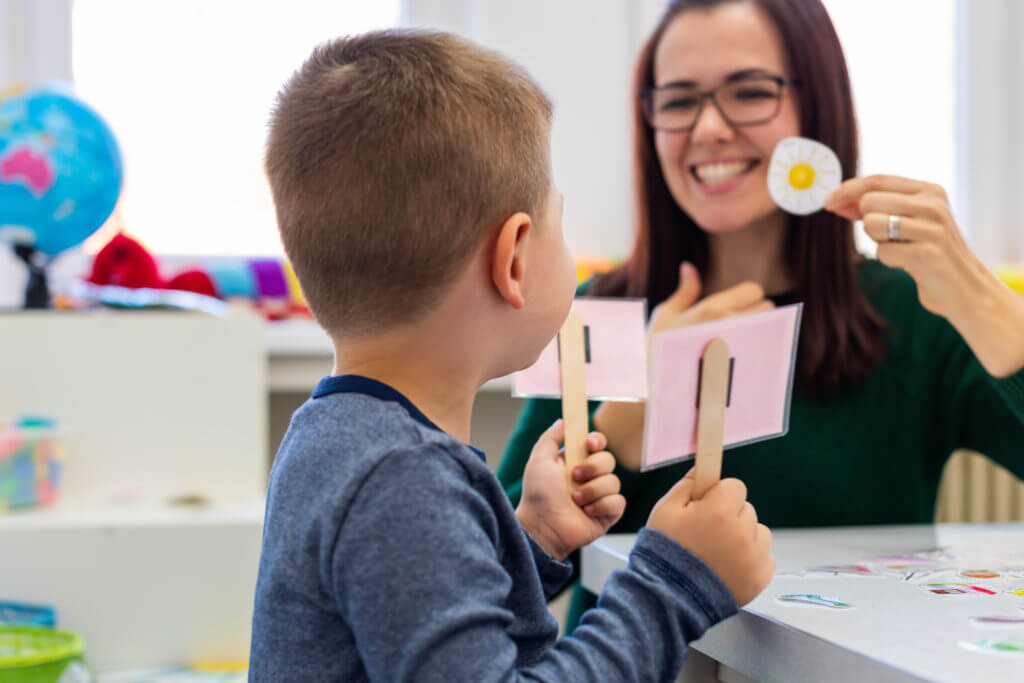
Special education is a very broad field and has many different specialties. Those who specialize in working with students who have extra challenges may find themselves in a number of different scenarios, depending on the school district or type of school that they are working in. There are six main types of special education within most public-school settings.
Push-in Services
Students with disabilities who require minimal intervention often receive “push-in” services as a first step in the special education process. A specialist, such as an occupational therapist or SLP, will come into the classroom to assist the teacher during regular lesson plans for the day.
Pull-out Services
Students who need a bit more focused help from a speech-language therapist, occupational therapist, or another specialist may be pulled out of the classroom for work in a one-on-one or group setting. Students who struggle in reading, writing, or speech are often placed within these types of programs.
Inclusive Classrooms
Inclusive classrooms will have a mix of children of varying abilities and co-teachers within the room that allows those who have special needs to get the additional help they require while remaining in a traditional classroom setting. Often, some of the students within the classroom may receive some pull-out services in addition to their assisted learning.
Exclusive Education
Some students benefit from being placed in a smaller classroom of students who have similar educational needs. Though they may remain within a traditional school setting, the lower student to teacher ratio can help them to grasp educational concepts and overcome challenges that would hold them back in other classroom formats.
Specialty Schools
Those who have severe cognitive challenges and certain physical disabilities may be placed into a specialty school where individual needs can be met by a very low student to staff ratio. These students can receive not only occupational, speech, and cognitive services but also will take advantage of other therapies to help improve their quality of life and prepare them for adulthood. These may include art therapy, aquatic therapy, job training, life skills, and other services as offered by the school.
Residential Programs
Residential special education programs are best for students who require around the clock care that is beyond the capability that their community can offer. These students often have medical needs beyond what can be managed at home or in even a specialty school that come before their educational needs. Students in these types of programs will often be transitioned into adult assisted living or residential care facilities as they mature out of the program.
Depending on the level of needs of a specific student, there are many different options to ensure that they have a quality education that expands on their strengths and helps them overcome their challenges. Those interested in working with special needs students can use this guide to help them best prepare and choose an educational track that will give them the tools they need to work with these amazing children.
Are you a special education school professional wanting to help make students’ lives better? Check out our openings across the country through the button below.
Special Education Jobs